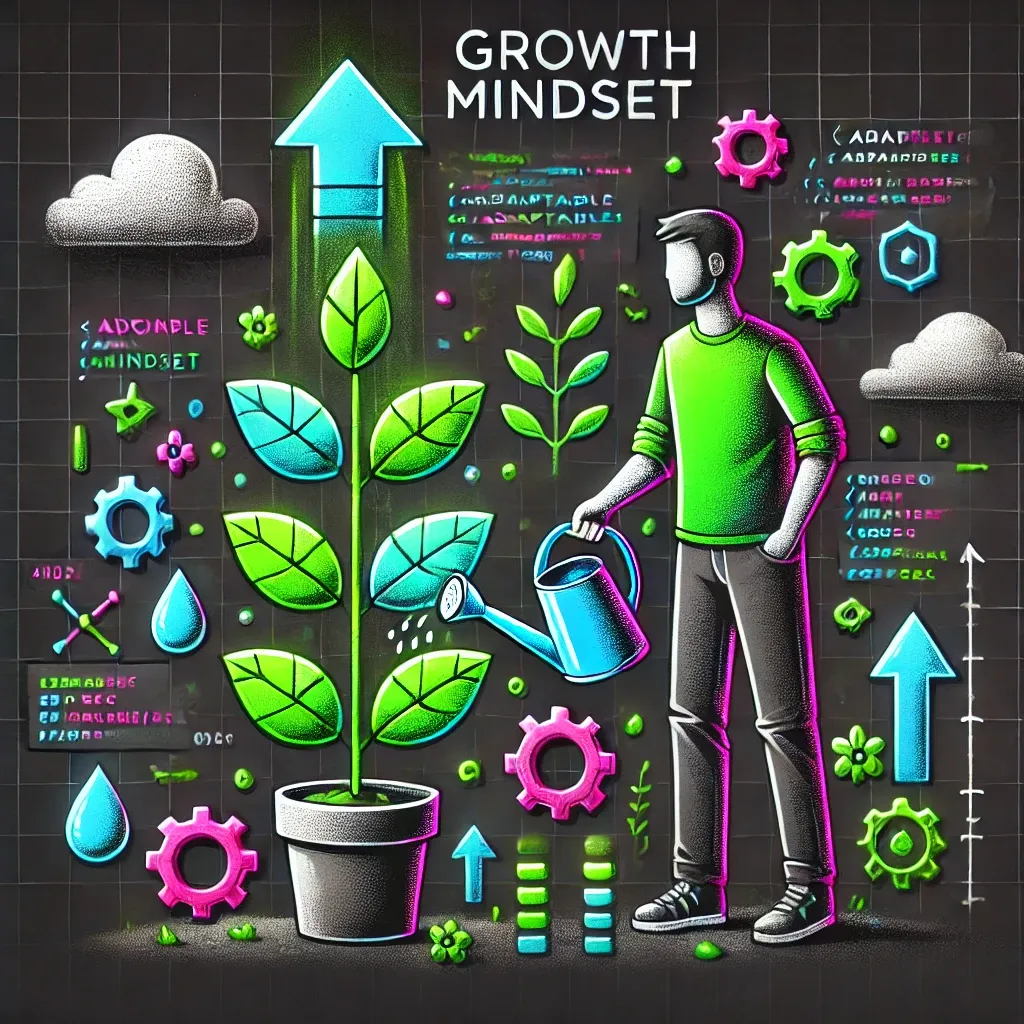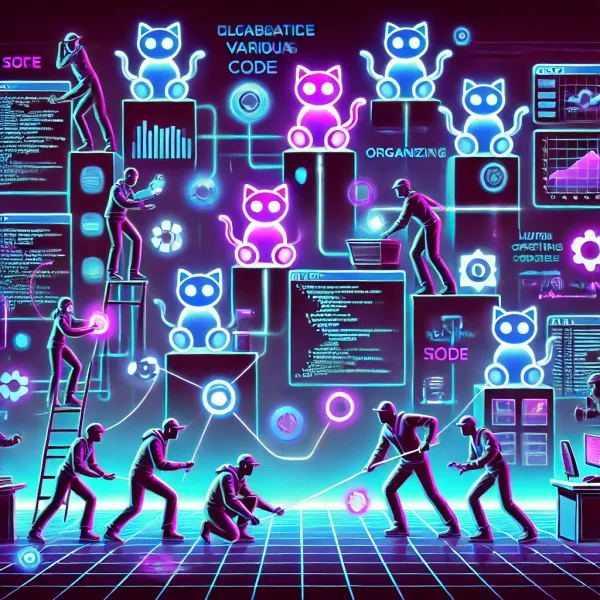Growth Mindset for Adaptable Developers: Embrace Change and Thrive
Discover how a growth mindset can help developers embrace challenges, learn from failures, and become more adaptable.

In software development, adaptability is a survival skill. Kind of like how coffee isn’t just a drink—it’s life fuel for developers. Whether it's keeping up with emerging technologies, shifting team dynamics, or tackling new challenges, the ability to adapt is what separates the successful from the stagnant.
But how do developers stay adaptable in a field that’s constantly changing? The answer lies in cultivating a growth mindset. Let’s dive into what a growth mindset is, why it’s crucial for developers, and how you can foster this mindset to become more adaptable and resilient.
🔑 Key Takeaways 🔑
- A growth mindset helps developers see challenges as opportunities for learning rather than threats.
- Cultivating curiosity, embracing feedback, and reframing failures are key ways to build adaptability.
- Developers with a growth mindset are more resilient, handle stress better, and are proactive in their learning.
What is a Growth Mindset?
A growth mindset is the belief that abilities and intelligence can be developed through effort, learning, and perseverance. Unlike a fixed mindset—which views talent and intelligence as static—a growth mindset encourages embracing challenges and learning from mistakes as a path to improvement.
For example, someone with a fixed mindset might say, “I’ve never been good at debugging, so I’ll probably mess this up,” whereas someone with a growth mindset would say, “Debugging is challenging, but I’m excited to learn and improve my skills.” This shift in perspective helps developers view obstacles as opportunities for growth rather than threats to their abilities.
Key Benefits of a Growth Mindset for Developers
Adaptability and Flexibility
A growth mindset helps developers become more adaptable by encouraging them to see obstacles as opportunities to learn. In the fast-paced tech environment, where new frameworks and technologies seem to pop up every month—like mushrooms after a rainstorm—having a growth mindset can make all the difference. Instead of feeling overwhelmed by change, adaptable developers welcome it as a chance to grow their skills and stay relevant. Change is like a bug in your code—you can either fix it and learn, or let it crash your entire day.
Promotes Resilience and Reduces Stress
Another significant benefit of a growth mindset is that it promotes resilience. When developers face setbacks—whether it’s a failed deployment, a missed deadline, or a challenging bug—those with a growth mindset see these situations as learning experiences. Instead of getting discouraged, they reflect on what went wrong and how they can improve next time. This resilience not only helps them bounce back from challenges but also reduces stress, as they learn to see failure as just part of the growth process—like realizing, after hours of debugging, that the issue was a missing semicolon.
Welcoming Failure as a Teacher
Thomas Edison famously said, “I have not failed. I’ve just found 10,000 ways that won’t work.” Kind of like trying to fix a bug by adding more console.log() statements—sometimes, you just need to find the right one. This attitude embodies the growth mindset perfectly. For developers, adopting this perspective means understanding that mistakes are an inevitable part of the learning process. Every failed attempt is an opportunity to learn something new—whether it's a new debugging technique, a better workflow, or a lesson on what not to do next time.
Strategies to Develop a Growth Mindset
Intentional Learning and Curiosity
To develop a growth mindset, it’s essential to be an intentional learner. This means actively seeking out new knowledge and experiences. In software development, this could be learning a new programming language, exploring a different part of the tech stack, or even just asking more questions during team meetings. The more curious you are, the more open you’ll be to new opportunities for growth.
Reframing Failures as Learning Opportunities
One of the most effective strategies for developing a growth mindset is to reframe failures as learning opportunities. Instead of seeing a failed deployment as a setback, see it as a valuable lesson. Ask yourself, “What can I learn from this?” and “How can I do better next time?” This shift in perspective helps remove the fear of failure and encourages developers to take on more challenging tasks without worrying about the outcome. After all, if you can survive a code review on a Friday afternoon, you can survive anything.

Seeking Feedback and Mentorship
Another key component of a growth mindset is the willingness to seek constructive feedback. Developers with a growth mindset actively look for ways to improve, and one of the best ways to do that is by seeking feedback from peers and mentors. Instead of taking feedback personally, they view it as an opportunity to get better. Constructive criticism helps highlight areas for improvement and fosters continuous growth.
Applying the Growth Mindset in Daily Work
Facing Professional Challenges
Applying a growth mindset in your daily work means looking at challenges as opportunities rather than roadblocks. If you’re assigned a task that seems outside your comfort zone—such as leading a project or learning a new technology—embrace it as a chance to grow. Adaptability is about learning to adjust to new environments, shifting project goals, or even changes in team dynamics. Developers with a growth mindset are proactive, taking on new tasks and preparing themselves for change.
Proactivity and Patience
A growth mindset also means being proactive and understanding that growth takes time. Being proactive involves anticipating changes and preparing for them—like keeping snacks at your desk because you know debugging always takes longer than expected. For instance, if you see that a new technology is becoming popular, start learning about it before it’s a requirement. Patience, on the other hand, is about recognizing that growth doesn’t happen overnight. It’s a continuous journey, and each small improvement builds on the one before it.
Conclusion
Cultivating a growth mindset is essential for developers who want to stay adaptable and thrive in an ever-changing industry. By seeing challenges as opportunities, embracing feedback, and actively seeking out learning experiences, you can transform obstacles into stepping stones toward growth. Whether you’re debugging a tricky issue, adapting to a new role, or learning a new skill, a growth mindset will help you navigate the ups and downs of a career in software development with resilience and optimism.
Ready to cultivate your growth mindset? Start by embracing your next challenge and viewing it as an opportunity to learn and grow.




